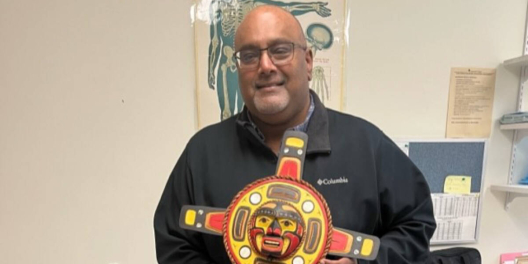Dr. Prean Armogam is a well-respected family doctor in Port McNeill.
He has been active in the community’s fight for better healthcare and has spent a lot of time shedding light on issues within the current system.
In a recent interview with the North Island Gazette, he tipped his hat to some positive changes that have recently taken place to better patient care.
“The changes in our communities have been remarkable,” he said. “Hats off to some of the operational change makers in increased staffing and the continued recruitment efforts.”
While changes are happening, and he’s glad to see the ball rolling, he continues to make his voice heard on what still needs to happen to salvage the state of care.
His primary focus is that a clear plan still needs to be developed for consolidating the services of frontline healthcare providers.
Basically, some doctors are carrying the load of multiple regions.
“Areas are struggling to keep their overworked physicians who do the heavy lifting for the other regions with a system strain constantly putting patients in harm’s way,” he said.
He says this division within the physician community, coupled with varying payment models, discourages team-based care and further fragments the healthcare system.
“The bottom line is that one site cannot simply take over the regions’ needs without more robust staffing, space and some creative and nimble thinking,” said Dr. Armogam.
The critical shortage of long-term lab, nursing and physicians continues, and he does not see clearly demonstrated efforts to mitigate this.
“Port McNeill physicians [remain] unpaid for the overnight additional work since October. The group continues to work 24-hour on-call shifts with minimal and often no sleep while expected to also work the next day.”
Locum doctors and nurses are just band-aids holding the system together for the moment.
“We thankfully have a steady stream of locum physicians, which appears to be the best remunerated and least problematic physician plan at present. This, however, does not encourage longitudinal [long term] patient care.”
And, of course, the back-and-forth closures of hospitals in the region, now called “decanting,” is far from what Armogam sees as ideal.
“Most mornings in Port McNeill, there are no beds in the ER to assess any new patients for several hours as the scrambling and decanting is set in motion to make space from the previous evening’s ER traffic.”
Dr. Armogam believes the North Island’s situation differs from larger areas like the Lower Mainland, as viable solutions exist but are not embraced by the health authority.
His words echo the urgent need for action to address the healthcare crisis and ensure the North Island community receives the quality care it deserves.









